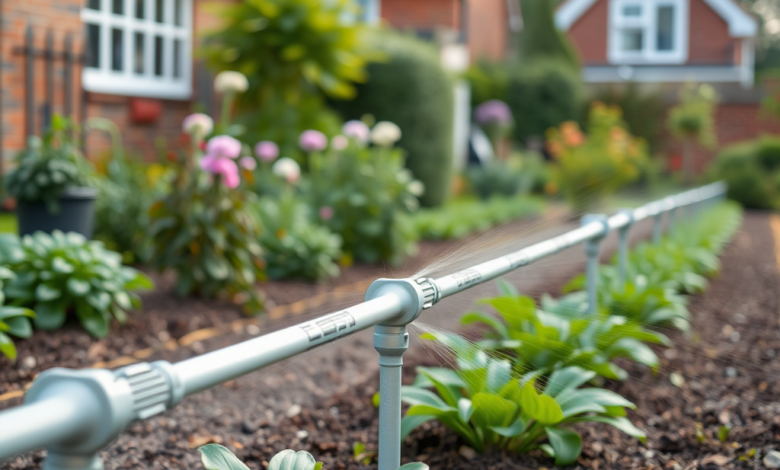5 Essential Maintenance Tips to Prolong the Life of Your Garden Irrigation System

A garden irrigation system is an invaluable tool for keeping plants healthy and vibrant. It delivers water precisely where it’s needed, saving time and reducing waste. However, like any piece of equipment exposed to the elements, regular upkeep is essential to maximise both efficiency and longevity.
One effective way to preserve your irrigation setup is by using quality components and replacement parts. Whether you’re overhauling an older network or installing new fixtures, exploring reliable options from TCR Garden Water Systems can help ensure you have everything you need for optimal performance. By following the maintenance tips below, you’ll protect your garden from potential water woes and keep things running smoothly throughout the year.
1. Check for Leaks and Breaks
Hidden leaks often go unnoticed but can lead to significant water loss and damage over time. A thorough inspection every week or two will help you spot loose connections, cracked pipes, or worn seals. Damp spots in otherwise dry areas of your lawn or flower beds may also hint at a hidden issue beneath the soil surface.
Promptly repairing any leaks you discover prevents larger, more expensive problems down the line. Make it a habit to shut off the water supply whenever you find a faulty component, then replace or fix it before turning everything back on. This quick, proactive step helps you avoid wasting water and keeps moisture levels balanced for healthy plant growth.
2. Monitor Water Pressure
Water pressure plays a major role in determining how efficiently your system runs. Excessive pressure can cause pipes to burst or emitters to spray too widely, wasting precious water. Conversely, low pressure can lead to uneven coverage and cause plants to miss out on essential moisture.
If you notice patchy watering, misting, or unusually forceful sprays, consider checking and adjusting your pressure regulator. You can also install a dedicated gauge to monitor changes as the seasons shift. Keeping water pressure within the recommended range helps reduce strain on your infrastructure and prolongs the life of your sprinklers and tubing.
3. Flush and Clean Components
Over time, irrigation lines and emitters can collect sediment, algae, and mineral deposits. These accumulations restrict flow and may cause uneven watering. Performing a seasonal flush—by briefly removing end caps and allowing water to run at full force—can help dislodge smaller obstructions.
For more stubborn grime, detach and rinse individual parts or use a soft brush to scrub away build-up. Filters, in particular, should be cleaned or replaced regularly to maintain steady water flow. Paying attention to each part of the system not only prevents blockages but also extends the operating life of valves, emitters, and other integral pieces.
4. Adjust for Seasonal Changes
Different seasons demand different watering schedules. Hot, dry weather often requires more frequent irrigation, while rainy or cooler periods naturally lessen water needs. Keeping track of rainfall and ambient temperatures allows you to tweak settings on timers or controllers for optimal results.
In colder regions, winterising your system is crucial for avoiding burst pipes or cracked fittings. Drain remaining water from lines, insulate exposed components, and switch off external supply valves until temperatures rise again. These small adjustments can prevent damage that might otherwise lead to costly repairs once spring arrives.
5. Keep an Eye on Worn Parts and Seek Expert Advice
Wear and tear is inevitable for any outdoor system. Drip emitters, seals, and connectors can degrade after prolonged exposure to heat, cold, and moisture. Regularly examining these components helps you spot early warning signs, such as brittle rubber or loose fittings, so you can act quickly before they fail entirely.
If you’re unsure about a particular problem or lack the time for in-depth checks, consulting a professional can be extremely helpful. An experienced technician might discover potential issues that aren’t immediately obvious, saving you both time and money in the long run. With the right balance of personal vigilance and occasional expert input, your irrigation system will remain a reliable ally in maintaining a flourishing garden.



